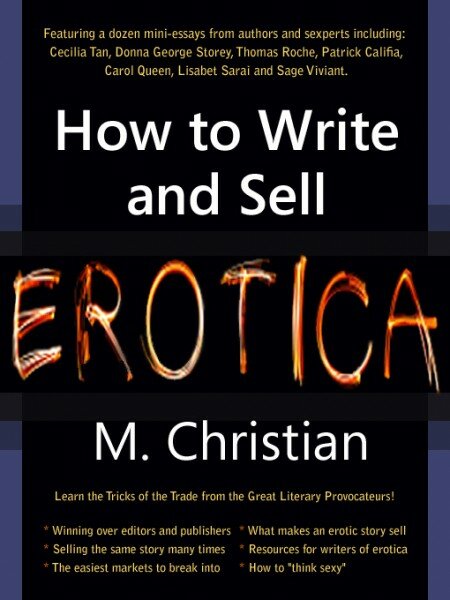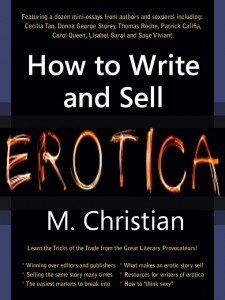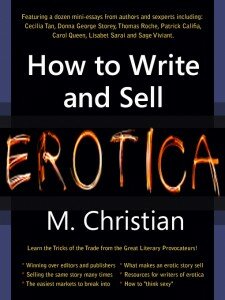Once in awhile someone will ask me “What, if anything, is verboten in today’s permissive, literate erotica?” The answer is that pretty much anything is fair game, but there are what are called the four deadly sins: four subjects that a lot of publishers and editors won’t (or can’t) touch. These by no means are set in stone, but they definitely limit where you can send a story that uses any of them. So here, in a special series, are theses sins, and what—if anything—a writer can do with them.
#
Of all the four deadly sins, the one that most-often cramps the style of many erotica writers (i.e. “pornographers”) has to be the use of characters that are below the legal age of consent. The difficulties are multi-fold: every state and/or country has different definitions of both what consent is and the age that anyone can give it; very few people have actually lost their virginity when legally able to give consent (and having everyone in a story or book being twenty-one when they first have sex is just silly); and there’s the scary potential that if you use a lot of characters below twenty-one you can look like a damned pedophile—and even get prosecuted as one.
Innocent scenes or even background like “he lost his virginity at seventeen” can be problematic, if not terrifying. While the likelihood is extremely remote, there still remains a chance that some Bible- thumping idiot from a backwater burg where consent is twenty-one could buy a copy of your work and then extradite you to said backwater to prosecute you for child pornography. It really has happened and could happen again. What really sucks is that they don’t have to win their case to ruin your life: not only is suspicion as good as guilt to many people, but the legal costs alone are guaranteed to bankrupt anyone but Bill Gates.
So how do you avoid the wrath of Bubba from backwater creek? First of all, it really depends on how the story is written. While there’s a chance they might go after you for that simple “he lost his virginity at seventeen” line, it isn’t a big one. But if you do decide to write— and manage against all odds to sell, or at least publish—something that reads like a glorification of juvenile sexuality, your odds go up considerably. As with a lot of things, context and focus have a lot to do with it: anything sinful can be written about if it’s done well and with an eye towards a finely crafted story with real emotion and dimension. James Joyce was banned, but it didn’t stick because it was art, and not Catholic Schoolgirls in Trouble.
Still, it’s always better to be safe than sorry, especially since there are very simple techniques a writer can use to keep the law off his or her ass, or just keep a nervous editor or publisher from getting even more nervous. One of the simplest ways to avoid being accused of profiting off underage characters is to blur the specifics of the character’s age. If I write, “he lost his virginity in high school,” it could, technically, be argued that the kid had been held back for four years and had his cherry popped at twenty-one. No age, no underage. I’ve often been in the position where I’ve had to ask the author of a story to remove an exact age from a story to avoid just this issue. Most authors, once they understand the concern, are more than willing to make little changes like that.
Another place where age can slip in is through description. For example, if I say boy, that usually implies someone younger than a man, therefore below the age of consent. But if I use the word lad, the line gets fuzzy. Hell, I could say, “he was a strapping young lad of fifty summers” and get away with it. You can’t do the same with boy—though of course you could say “young man.” It’s all subjective.
Of course, you can use boy in dialogue—as it could be a sign of domination or affection: “Come here, boy, and lick my boots.” The boy in question could be sixty and graying. In one of those weird sexist twists of language, by the way, girl is not quite as loaded, as girl is frequently used to describe a woman of almost any age. Go figure.
Back to the high school thing: I don’t want people to think you have to be incredibly paranoid to write erotica—but it is something to keep in mind. The Man (or even backwater versions of same) are hardly going to haul your ass off for just one line or just one story, but if someone goes go on a crusade, they sure aren’t going to arrest the cast and crew of American Pie (or anything like it). You, maybe—them, definitely not.
Like all of these erotica-writing sins, the person who worries the most about these things isn’t the Man or the writers, but the editors and publishers. Distributors are notoriously nervous around certain kinds of content, and these jitters are passed right down line to the publishers, and then to the editors.
Just as there are editors and publishers who are too cautious, there are others that don’t care one whit, or even take pride in pushing as many envelopes as possible. You name the sin and they’ll do it. While this is great, and deserves a hearty round of applause, it can also mean that if you write something really out there—even if it’s something you think a market would like—and it gets rejected, you’re stuck with a story that no one will ever look at. It’s just something to keep in mind.
The answer to this confusion between the careful and the outrageous applies to most questions regarding markets for erotica:
- Read the publication
- Check out the guidelines
- Ask questions, and…
- Don’t argue
I always remember this one person who sent me a story for a book I was editing, with an arrogant little note saying it was okay that the characters in his story were nine, because his story was set in Ancient Greece and the age of consent back then was eight. One, that was rude; two, I wasn’t going to take anything with characters that young; and three, I didn’t make the rules, the publisher did. I couldn’t have taken the story even if I thought he was the next James Joyce. I didn’t even read the story. I just rejected it.
In short, while it’s not realistic—if not stupid—to insist that characters be legally old enough to have sex, it is a factor a writer should keep in mind. Write what you want to write, but the instant you make that decision to try and share what you write with the rest of the world, be aware that you’re probably going to have to compromise or work within certain limitations.
It might not be pretty, but it’s part of life—just like losing your virginity.











Recent Comments